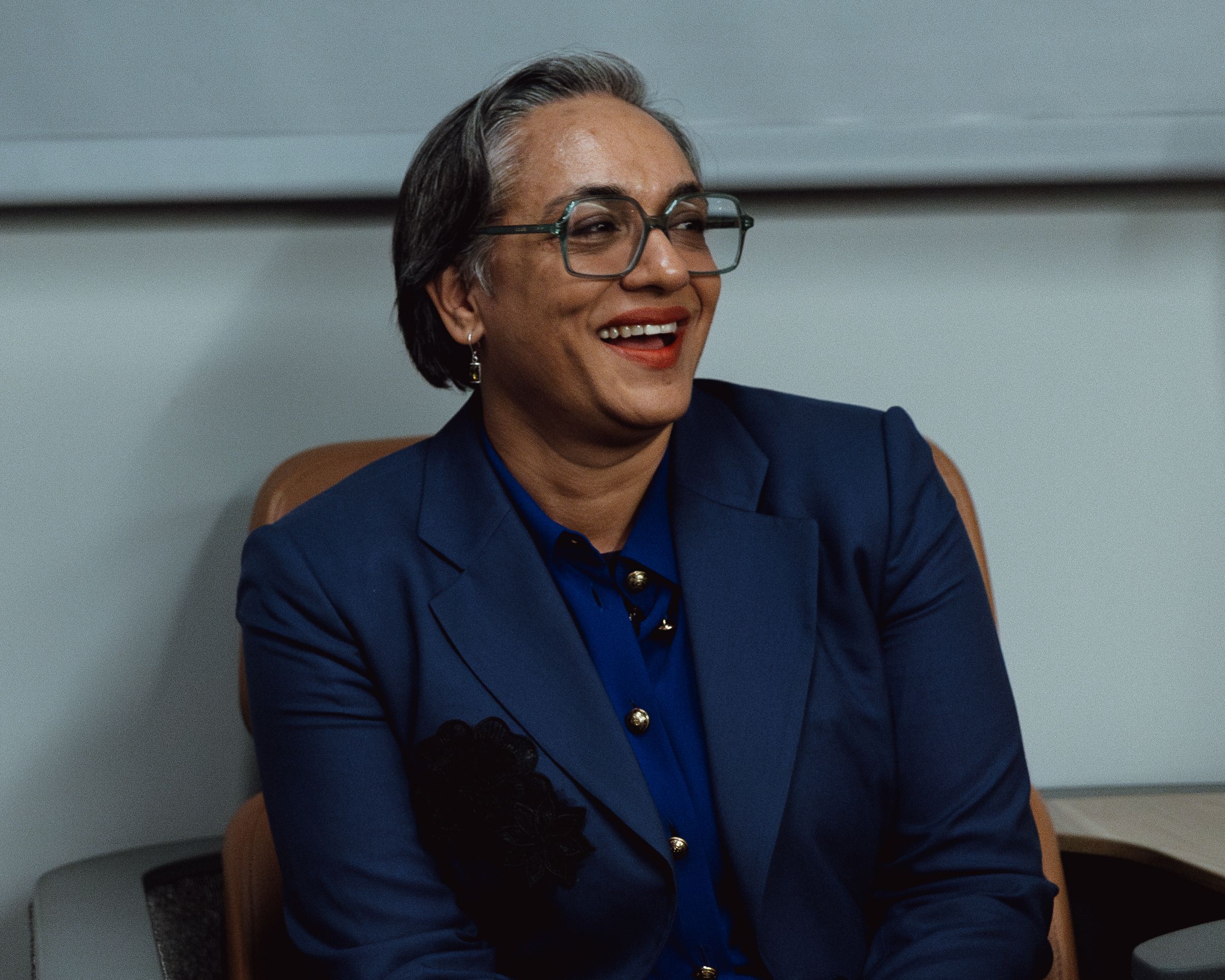
Photo by Chad Brady.
Anuradha Vikram is a writer, curator, and educator in Los Angeles. They are co-curator of the 2024 Portland Biennial and guest curator of the Getty PST Art exhibition Atmosphere of Sound: Sonic Art in Times of Climate Disruption (2024–25) for UCLA Art Sci Center, and the author of Decolonizing Culture and Use Me at Your Own Risk: Visions from the Darkest Timeline. Before moderating the Zócalo, Arts for LA, ASU Narrative and Emerging Media Program, and LACMA program “Is AI the End of Creativity—Or a New Beginning?,” Vikram sat down in our green room to talk humankind, what needs more automation, and who already gives off AI vibes.
You lived in the Bay Area for many years. What is something you miss about it?
The landscapes. People, too; lots of great people still live there. And food, for sure. I spent a lot of time eating in the East Bay in particular. So some of my favorite Berkeley restaurants are Ajanta, which is this wonderful Indian restaurant in North Berkeley; Little Star Pizza; Burma Superstar in Oakland; a Korean restaurant that I can’t remember the name of. And there’s a wonderful place called Wally’s in Emeryville that’s a Lebanese restaurant behind the Bank Club, which is a bar. You’ll never notice it. It’s behind the dumpster and it’s the best food you’ve ever eaten.
At its most basic, what does the phrase decolonizing culture mean to you?
It means something different now than it did when I wrote the book, which was between 2013 and 2017. At that time, I think I was more led by the Movement for Black Lives, and I feel like there was a lot of emphasis on just getting cultural institutions to recognize that they would even have audiences of color, and that they should consider these to be audiences they should serve to some degree of sensitivity. In 2017, when I published the book, I think that people were starting to get more wise to that. But that was when I started to also learn a lot more about how to be led by Indigenous thought, which is something that I’ve developed, you know, probably too late.
I would definitely say that what it means to me is also a process of decolonizing yourself—that you’re always learning, and you never feel like you have it figured out, and you’re always adaptable. Cultural power is real power. It’s real political power. It’s real organizing power. It can be real economic power. And often we’re led to believe that cultural power is symbolic and maybe not tangible or not material and is not really going to change things. But I don’t agree with that at all.
Who inspires you?
Now that I’m teaching college students, my students inspire me every day. They come from all walks of life, and they are often really impacted by economic and social conditions and marginalized in certain ways. And they have tons of energy, they have tons of joy, tons of creative ideas. They’re all artists, and live like artists. So, yeah, I’m mostly inspired by young people right now. My own kids, the kids I get to work with—they fill me with energy that makes me want to be alive.
Who is somebody that gives off they’ve-already-been-replaced-by-AI vibes?
Definitely customer service has been erased by AI, replaced by AI. But I’m going to go out on a limb and say: managers. I think managers have outsourced all of their work to AI. And now they’re really just kind of herding the AI. And maybe that’s how it should be. I don’t know.
I’m going to name a few things. Tell me if you think it needs more or less automation.
Clocks. LESS.
Traffic lights. MORE.
Music. LESS.
Scheduling. MORE
Grocery shopping. MORE
What do you find unique about humankind?
We’re all special snowflakes! I mean it’s true … Every person I meet is a little bit different from one another; at least the interesting ones are. We’re all our own individual algorithms.



